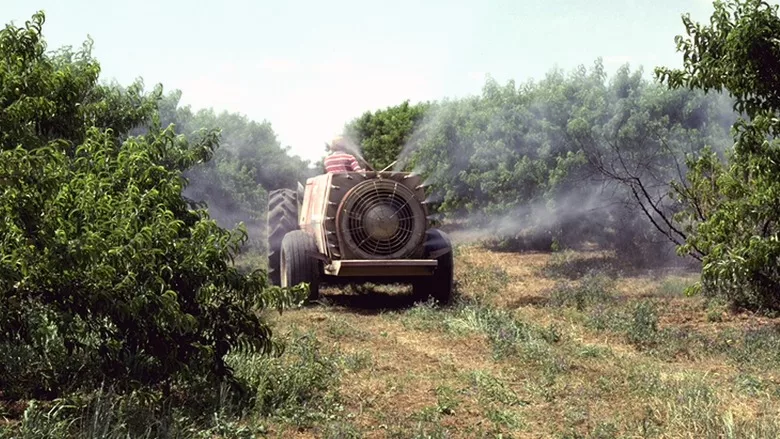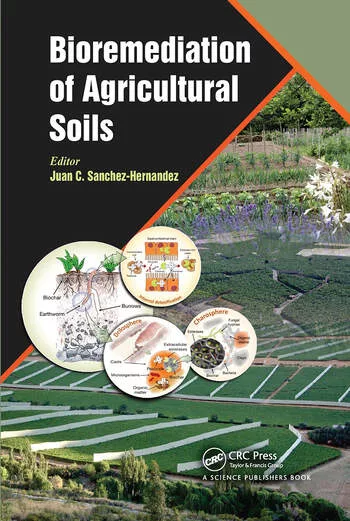Study finds high levels of PFAS in pesticides, 'lacing the world' with contamination
Public Employees for Environmental Responsibility amplify study showing PFAS leaches off the walls of plastic containers and contaminate pesticides.

Photo courtesy of USDA
New research has documented disturbingly high levels of per- and polyfluoroalkyl substances (PFAS) in widely used pesticides. These findings contradict previous statements by the U.S. Environmental Protection Agency that PFAS are not used in registered pesticide products and has prompted a coalition of groups and an elected leader to urge that the state of Colorado act immediately to ban use of any pesticide containing PFAS.
Published in the Journal of Hazardous Materials Letters the study, the study, “Targeted Analysis and Total Oxidizable Precursor Assay of Several Pesticides for PFAS,” found PFOS (one of the two legacy PFAS that is no longer manufactured in the United States) in 6 out of 10 tested insecticides at incredibly high levels, ranging from 3,920,000 to 19,200,000 parts-per-trillion (ppt). By contrast, this June EPA updated its Health Advisory for PFOS to 0.02 ppt;
These PFAS are being taken up into the roots and shoots of plants, which means that they are entering our food supply through contaminated soils. Given that PFAS are “forever chemicals,” this contamination will last long after PFAS is removed from pesticides; and
A non-targeted PFAS analysis indicates that there are far more additional unknown PFAS in 7 out of 10 tested insecticides.
“If the intent was to spread PFAS contamination across the globe there would be few more effective methods than lacing pesticides with PFAS,” says PEER Science Policy Director Kyla Bennett, a scientist and attorney formerly with EPA, noting that one of the pesticides containing PFAS is malathion, one of the most commonly applied insecticides in the world. Bennett added, “These findings require the state to stop spraying these pesticides and ban the use in Colorado.”
On September 1, EPA moved to remove 12 PFAS from its approved list of inert ingredients for pesticides. Its announcement stated that “these PFAS are no longer used in any registered pesticide products.” However, this new study demonstrates that the PFAS problem in pesticides goes far beyond the inert ingredients.
“This research has alarming implications that demand immediate regulatory action: the Colorado Department of Agriculture must order that all registered pesticides test their products and immediately ban the use of pesticides that contain PFAS,” added Bennett, arguing that EPA can no longer rely on voluntary manufacturer testing. “The level of absorption by plants suggests that a person could absorb a lifetime dose of PFAS from eating one salad made with produce treated with these pesticides.”
“Colorado has been a leader among states in addressing the dangers of these chemicals to protect our public health. Governor Polis is deeply invested in public health issues. We are hopeful that he will step in and direct the Department of Agriculture to investigate and make some significant changes,” says PEER Rocky Mountain Director, Chandra Rosenthal.
Moreover, the study’s detection of unknown PFAS suggests that many of the PFAS being found fall outside the very narrow definition that EPA is developing for regulatory purposes. PEER has been urging EPA to address all PFAS, as a category, rather than continuing its present chemical-by-chemical approach for the hundreds of PFAS currently in use and the unknown number of these chemicals in development.
The organizations and elected leader urging Governor Polis to ban the use of PFAS on pesticides are Public Employees for Environmental Responsibility (PEER), Physicians for Social Responsibility- Colorado, Colorado Public Interest Network (CoPIRG), People and Pollinators Action Network, the Colorado Chapter of the National Council of Jewish Women and Representative Cathy Kipp.


.webp?height=200&t=1663879182&width=200)

